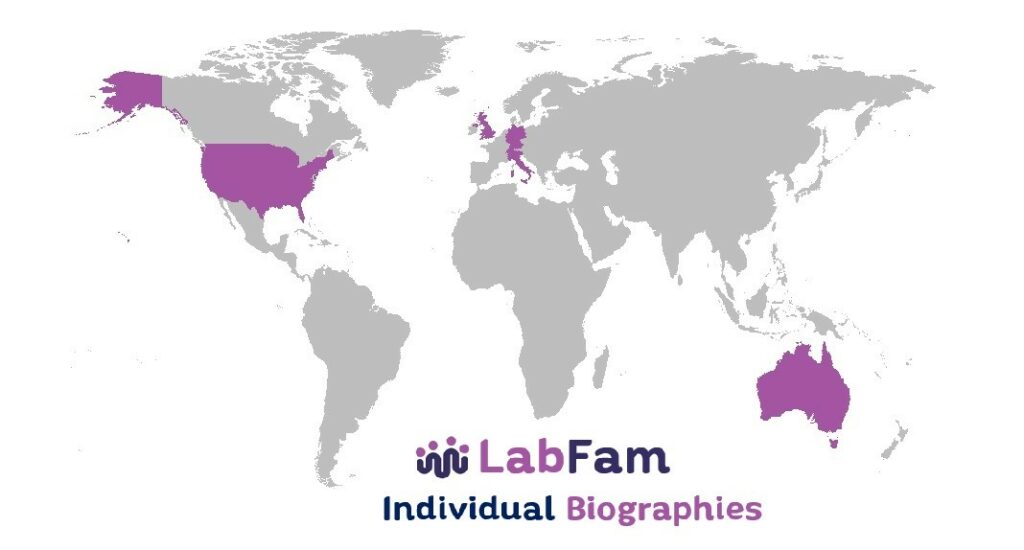LabFam Individual Biographies (LIB): open science project that harmonizes family and employment histories
The idea behind our project is to harmonize longitudinal databases paying attention to individual life-course trajectories. We construct spell data for individuals along three different life dimensions:
fertility, which records the number and timing of births
partnership, which records the timing of union formation and union dissolution
employment, which collects data on employment spells and characteristics of the jobs held, when available.
This information is drawn from available longitudinal surveys, utilizing their panel components, calendar modules and retrospective questionnaires.
The aim of our project is to provide an open-source code that harmonizes the most commonly used household panel surveys including:
- Germany: SOEP (German Socio-Economic Panel)
- Switzerland: SHP (Swiss Household Panel)
- United Kingdom: BHPS/UKHLS (British Household Panel Survey; Understanding Society –UK Household Longitudinal Study)
- Italy: FSS (Family and Social Subjects Survey)
- United States: PSID (Panel Study of Income Dynamics)
- Australia: HILDA (Household, Income and Labor Dynamics in Australia Survey)
The project extends the Comparative Panel File (CPF), which harmonizes world major panel surveys, by providing the possibility to study family and employment transitions over the life course.
LIB is :
Innovative – for the first time the attention is given to individual life-course trajectories
Comprehensive – utilizes panel, calendar and retrospective questionnaires
Open – the code (in R) will be provided to lower the entry barriers into longitudinal analysis.
Flexible – allows choosing time span, set of countries and dimension of individual biographies, any further modification/extension
Compatible – with other already available harmonized datasets, like CPF (Turek et al., 2021)
Currently, LIB is still work in-progress endeavor developed by LabFam researchers from University of Warsaw: Ewa Weychert, Beata Osiewalska, Lucas van der Velde, Anna Matysiak
The authors emhasize how innovative the implemented approach is:
“It is quite unique in a way it’s prioritizing the harmonization of individual trajectories, such as employment or fertility history, across the most widely recognized social surveys. Unlike traditional cross-sectional harmonization that focus solely on snapshot characteristics, this innovative approach facilitates a comprehensive understanding of respondents’ lives, offering a unique perspective on their experiences over time” – says Beata Osiewalska.
“By capturing precise timing of events such as births, union formations, or job changes that might occur between standard survey waves, LIB provides researchers with a richer and more detailed view of the dynamics and changes within individual life courses” – she adds.
Codes and data may seem rather hermetic. However, there’s undoubtedly a rare beauty in remarkable complexity and diversity found within individual life trajectories.
Beyond the commonly observed trajectories, there exists a beautiful array of unique life courses that are distinct from any others. The richness and variety of experiences among respondents astonished me and underscored the uniqueness of each individual’s journey through life.
But this complex beauty brings the biggest challenge for the authors. Capturing every possible patterns of events, ensuring the accurate recording of data and maintaining coherence with other surveys included in the harmonization process required meticulous attention to detail. But it also highlighted the importance of this approach in capturing the richness of respondents’ experiences over time. The dedication and effort invested in addressing these challenges ultimately paved the way for more insightful and nuanced longitudinal analysis.
For whom (what sort of research) will this open-source code be useful?
The possibilities are endless. It can find application in diverse fields, such as sociology, demography, economics, and other social sciences, where understanding and interpreting individual life trajectories over time are crucial to answering complex research questions. The open-source code will be a valuable resource for researchers engaged in longitudinal analysis and interested in exploring causal, long-lasting phenomena.
